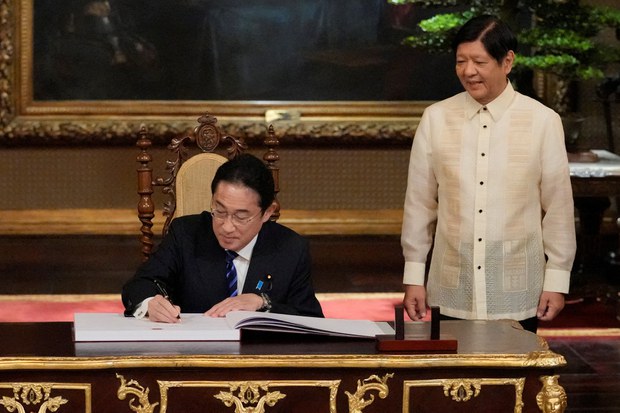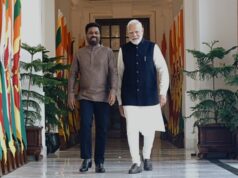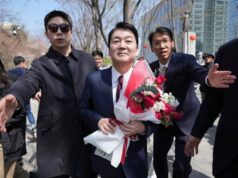Japan, Philippines agree to boost defence ties amid Chinese threat

Japanese Prime Minister Fumio Kishida and Philippine President Ferdinand Marcos Jr. agreed Friday to bolster defence cooperation between their countries amid China’s expanding military presence in the region.
At their meeting in Manila, Kishida and Marcos confirmed that they will begin negotiations on a new bilateral treaty, known as a reciprocal access agreement, to strengthen security ties and facilitate joint defence drills, according to their joint press appearance.
“Through our cooperation with the Philippines, we hope to maintain and strengthen a free and open international order based on the rule of law to ensure a world where human dignity is protected,” Kishida said at the appearance after the talks.
Marcos said of the RAA, “We are cognizant of the benefits of having this arrangement both to our defence and military personnel and to maintaining peace and stability in our region.”
It will be Japan’s first RAA with a member of the Association of Southeast Asian Nations and the third following pacts with Australia and Britain that took effect earlier this year. Kishida arrived in Manila earlier Friday.
Japan and the Philippines have been seeking to boost trilateral defence cooperation with the United States in response to China’s construction of artificial islands with military infrastructure in nearby waters and frequent intrusions into the territorial seas of others.
Kishida said Japan “opposed unilateral attempts to change the status quo by force.”
Tokyo has dismissed Beijing’s claim over the Japan-controlled Senkaku Islands in the East China Sea, while Manila has long been at odds with the communist country over its claims of sovereignty over almost the entire South China Sea.
In late October, Manila and Beijing blamed one another over a collision involving their vessels in the South China Sea, home to some of the world’s busiest shipping lanes.
During his talks with Marcos, Kishida promised to provide the Philippines with coastal surveillance radar under a new support framework for like-minded nations that share values such as the rule of law and respect for basic human rights, they said.
Marcos said the grant program, called official security assistance, or OSA, would “further enhance the military capacities of our countries, including the Philippines, which shares common security concerns with Japan.”
Japan has designated four Asia-Pacific countries — Bangladesh, Fiji, Malaysia and the Philippines — as recipients of OSA, earmarking 2 billion yen ($13 million) for the fiscal year through March 2024.
On Saturday, Kishida is slated to become the first Japanese premier to deliver a speech at the Philippine parliament, in which he is certain to address Tokyo’s basic policy on Southeast Asian diplomacy for the future, the government said.
In his three-day tour to Southeast Asia, Kishida also plans to visit Kuala Lumpur to talk with his Malaysian counterpart, Anwar Ibrahim, on Sunday.
The two leaders may exchange views on ways to promote diplomatic and defence cooperation, as Kuala Lumpur, along with Manila and other ASEAN nations, has overlapping territorial claims with Beijing in the South China Sea, government sources said.




